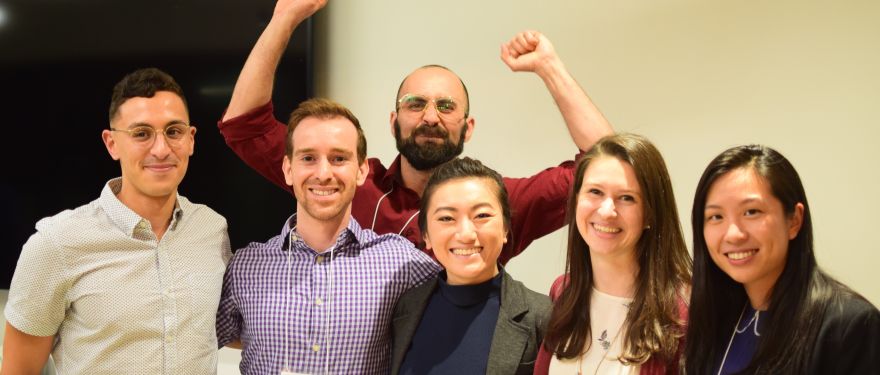Kristina Wang (MBA 2020) is an MBA student at HBS who just completed her first year and is currently interning at Denali Therapeutics before her second year.
I did not expect myself to become interested in biotechnology. Growing up in Vancouver, Canada, with Taiwanese immigrant parents, I considered the path of becoming a medical doctor. However, a volunteering experience at the hospital of the University of Pennsylvania drew my attention to clinical research and, in particular, the significant impact translational science has on patients’ lives. I became fascinated by the challenges and immense potential that sit at the intersection of life sciences and business.
After studying Chemical Engineering and Finance at Penn, I worked at the healthcare investment banking group of BofA Merrill Lynch and then at a healthcare venture capital firm, F-Prime Capital Partners. I enjoyed my job at F-Prime immensely – there were days I found myself knee-deep in technology diligence with scientific/medical experts in one meeting while structuring deals and meeting entrepreneurs in another. My exposure to CEOs and VC Partners showed me the essential qualities that drive superior R&D innovation and drug development. These qualities straddle the science and business fields – for example, to instill a science-focused culture within an organization, or to craft a drug development strategy that maximizes the chances of a transformative technology benefiting patients with limited resources. There were many paths to acquire these qualities; I ultimately decided that graduate school was a right fit for me and applied to both the MBA and the Master of Medical Sciences (MMSc) Immunology Program at Harvard.
If the MS/MBA Biotechnology: Life Sciences Program had been an option for me, I definitely would have applied, for these reasons:
Leadership
As mentioned, both scientific and managerial skillsets are required to commercialize biotech discoveries and realize its benefits for many patients. I would have viewed the MS/MBA Program as a learning opportunity to become a leader who possess both skillsets.
Academic
A two-year joint degree program covering sciences and business courses taught by professors from Harvard’s Department of Stem Cell and Regenerative Biology (HSCRB) and Harvard Business School (HBS) who are preeminent in their respective fields? No-brainer here.
Signaling
MBAs who are fluent in the languages of science and business are rare. The joint degree program provides a strong differentiation that will likely open more doors to coveted jobs in the life sciences industry.
People
I would have been incredibly excited about meeting other students who share my passion in building biotech companies. My classmates in the MS/MBA Engineering Sciences Program have raved about the strong friendships made from their joint degree cohorts, and I’d expect nothing less from this new joint degree program!
At HBS, I have had the opportunity to take advantage of many resources related to my interests in biotech. I took a translational pharmacology class at HMS in the J-term of my RC year and worked with scientists across the Harvard ecosystem to launch biotech startups via the student-led Activate program. An MS/MBA Biotechnology: Life Sciences Program would have supplemented these resources by providing a structured, holistic way to learn these combined skillsets. I am thrilled about the new program and cannot wait to meet the students in the inaugural cohort!

